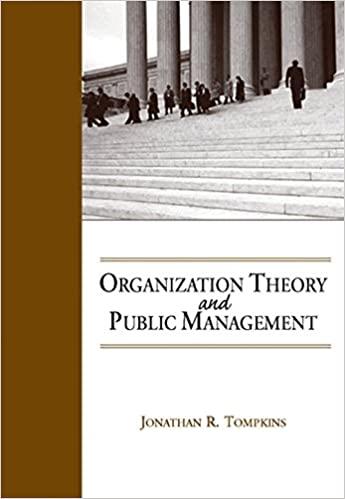Question
Claim the maximum CCA (business and property) in order to reduce the tax liability. No CCA should be claimed against the personal residence. Ignore GST/HST
Claim the maximum CCA (business and property) in order to reduce the tax liability. No CCA should be claimed against the personal residence. Ignore GST/HST on sales and expenses.
Employment Income
| Box 14 | $150,000 |
| Box 16 | $3,499.80 |
| Box 18 | $952.74 |
| Box 22 | $41,500 |
| Box 24 | $60,300 |
| Box 26 | $64,900 |
Business Income In addition to working a standard 9 a.m.-5 p.m. job, Ms. Smith had an innovative idea and a couple of years ago she started her own business. The details you will need to complete her T1 Return are below: The unincorporated business earns $6,000 per month. Ms. Smith operates an unincorporated business out of her personal residence and the entire basement (which is 1/3 of the total house) is dedicated to the business. The house has three levels, including the basement. No other part of the house is used to earn income. Ms. Smith regularly meets clients there to discuss future sales. To furnish the home office, Ms. Smith spent $5,000 on office furniture (Class 8 for CCA) on January 1. Ms. Smith was getting tired of the dated bathroom on the top floor of the house and decided to renovate it for a cost of $25,000. The monthly heating and utility bills for the whole house are $120 and $150, respectively. Ms. Smith pays her mortgage twice a month (24 times a year) and the payments are $750. The outstanding mortgage balance on January 1 was $233,000 and on December 31, it was $219,500. The property tax bills were paid on time, directly to the city and the cost was $4,000 (the property tax amounts were not rolled into the mortgage). On January 1, she purchased a brand-new computer (Class 50) for $1,500 and bought new software (Class12- not the system software) at the same time for $1,000. Ms. Smith pays $45 per month for online local advertising. In order to drum up business, Ms. Smith purchased seasons tickets for both the Senators: The cost for the Senators tickets (2) for $1,500 each. Ms. Smith will take a client to every hockey game; she has not missed a game in over five years. Ms. Smith also buys Redblack tickets for her family every year for a total amount of $3,000. Due to environmental reasons, Ms. Smith does not own a car, so she rides her bike whenever she needs to meet a client or a supplier. During the taxation year, Ms. Smith purchased $32,000 worth of items for resale in her business. Her brother is always helping out with the business; however, he has never received any kind of renumeration for the assistance he has provided. Ms. Smith has a business bank account and the monthly banking fees associated with this account are $5 a month. In March, one of Ms. Smiths best customers went bankrupt and was unable to pay for the purchased she made. The customer owed a total of $3,500 to Ms. Smith. Ms. Smith pays $75 a month for a storage locker that she has had for over 3 years. Everything in the storage locker was bequeathed to her from her great uncle. She has no use for the items, but she cant seem to let them go. A couple of years ago, Ms. Smith received an inheritance and she decided to use that money to purchase two condominium units in the same development. Both units are finalized on January 1 and they were both rented out for the entirety of the taxation year. Condo 1 (Class 1) had a purchase price of $250,000 and is rented out for $825 a month. The monthly condo fees are $60, and Ms. Smith paid in total $4,200 in mortgage interest. The property taxes were $2,500, and the insurance for the unit was $400. The tenant that rented out this property all year told Ms. Smith that she hated the colour of the carpet in the bedrooms. In order to keep the tenant happy, Ms. Smith paid to get the carpet replaced for $1,350. Condo 2 (Class 1) had a purchase price of $550,000 and is rented out for $2,250 a month. The monthly condo fees are $140, and Ms. Smith paid in total $17,800 in mortgage interest. The property taxes are $5,500, and the insurance for the unit was $800. This is the bigger of the two units and Ms. Smith decided that she would buy a freezer (Class 8) for $1,000 for the tenants as the freezer that came with the fridge was too small for a family of four. In the current year, Ms. Smith received a hot stock tip from a friend regarding a brand-new industry and she decided to buy 10,000 shares at $2.50 each. The investment did not turn out so well and on December 30th, Ms. Smith decided to sell all the shares at $0.75. She was devasted when she had to sell them, but she was scared that the share price would have dropped even lower. In the current year, Ms. Smith received another hot stock tip from an article she read online. On March 1st, she bought 500 shares at $35 each. Due to the financial instability she decided to also sell all of these shares on December 30 for $38.50 each. Ms. Smith has sworn off self-directed investments due to the stress they both caused her over the past 18 months.
Step by Step Solution
There are 3 Steps involved in it
Step: 1

Get Instant Access to Expert-Tailored Solutions
See step-by-step solutions with expert insights and AI powered tools for academic success
Step: 2

Step: 3

Ace Your Homework with AI
Get the answers you need in no time with our AI-driven, step-by-step assistance
Get Started


